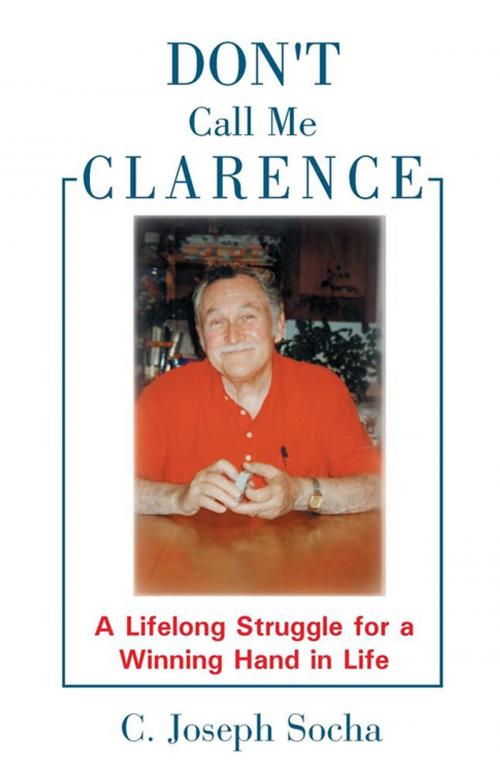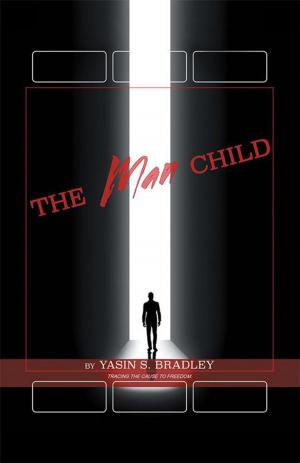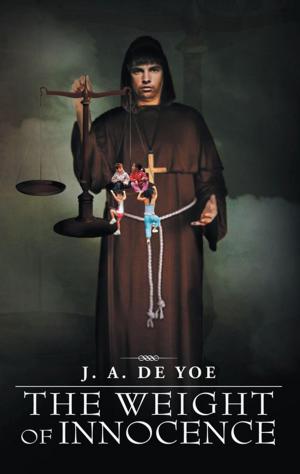| Author: | C. Joseph Socha | ISBN: | 9781462829019 |
| Publisher: | Xlibris US | Publication: | November 7, 2000 |
| Imprint: | Xlibris US | Language: | English |
| Author: | C. Joseph Socha |
| ISBN: | 9781462829019 |
| Publisher: | Xlibris US |
| Publication: | November 7, 2000 |
| Imprint: | Xlibris US |
| Language: | English |
Dont Call Me Clarence! begins with an introduction describing what life was like during the authors childhood, the Depression years, a bit of colorful history of that era. Then the chapters take us from the authors early years how his inferiority complex came to be, a lot to do with character-forming, the pressures and influences and how important it is to be aware of both harmful and positive experiences, and even more importantly, how often people who denigrate us may actually benefit us by making us try harder to prove them wrong,
The author had at least three strikes against him as a youth: that name, Clarence, in his tough neighborhood humiliated him; he was short and thin which made him an easy mark for neighborhood bullies. Bad enough, there was the Fat Man, Fathers nephew who came to live with the family during the Depression until he could get on his feet financially, but he never left. The Fat Man was a cynical, faultfinding person who seemed to target Clarence with criticism mostly because Clarence tended to argue and fight back. But thanks to his father and mother, good old-fashioned, Old Country Christians, Clarence acquired what he called a beacon to distinguish right from wrong that influenced him to lead a straight life. His behavior was affected by a combination of positive and negative responses, but mostly his determination to fight back, to try harder to prove himself, helped him succeed in the difficult life that he led.
Outside the home, there were two very positive influences that gave Clarence a goal in life. There was Mrs. Lowe, the grade school librarian who persisted in getting Clarence to read. It wasnt easy for her, but she put a book in his hand, and he opened it, and suddenly that fantastic world of books took hold. Clarence couldnt get enough books to read. The more he read, the more he wanted to improve his knowledge and education. Book stories fueled his imagination and opened the door to a fantasy world where heroes always won, and good triumphed. It influenced his personality. It also energized his creative mind. His own stories came to mind. And it was a second dedicated teacher, Mrs. Gabrielle, who took him in hand and encouraged Clarence to write. He then knew that what he wanted most out of life was to become a writer, and he had a goal, which he pursued.
There were the Depression years that toughened people to hardships, and Clarence tried early in life to get work, any kind of work to help provide income for the family. He had that work ethic that employers recognized so he always had someone wanting his services. In those years before self-service markets, Clarence clerked for a grocery store, learned how to deal with people, and he learned an important lesson. When employers see you working is when other job offers come up. Work produces work.
Then came World War II. Clarence enlisted in the Navy. He served on four ships that took him to different lands to see different people. His third ship was sunk off of Ansio, Italy, and he barely survived. His fourth ship he saw being built in Sturgeon Bay, Wisconsin. His ship, the PGM-30, a gunboat, was in Okinawa where the Japanese were determined to fight to the death, inflecting heavy wounds to our Navy. The PGM-30 was part of an invasion fleet awaiting action in the invasion of Japan, that American planes dropped the atomic bombs on Hiroshima and Nagasaki, and suddenly the war was over.
After the war, there was a quandary in Clarence: what to do for a living? His goal of becoming a writer was stalled, at age twenty-six. Here another helpful person persuaded Clarence to go back to school. Back to college among young teenagers fresh out of high school was embarrassing, but Clarence persisted, earned hi
Dont Call Me Clarence! begins with an introduction describing what life was like during the authors childhood, the Depression years, a bit of colorful history of that era. Then the chapters take us from the authors early years how his inferiority complex came to be, a lot to do with character-forming, the pressures and influences and how important it is to be aware of both harmful and positive experiences, and even more importantly, how often people who denigrate us may actually benefit us by making us try harder to prove them wrong,
The author had at least three strikes against him as a youth: that name, Clarence, in his tough neighborhood humiliated him; he was short and thin which made him an easy mark for neighborhood bullies. Bad enough, there was the Fat Man, Fathers nephew who came to live with the family during the Depression until he could get on his feet financially, but he never left. The Fat Man was a cynical, faultfinding person who seemed to target Clarence with criticism mostly because Clarence tended to argue and fight back. But thanks to his father and mother, good old-fashioned, Old Country Christians, Clarence acquired what he called a beacon to distinguish right from wrong that influenced him to lead a straight life. His behavior was affected by a combination of positive and negative responses, but mostly his determination to fight back, to try harder to prove himself, helped him succeed in the difficult life that he led.
Outside the home, there were two very positive influences that gave Clarence a goal in life. There was Mrs. Lowe, the grade school librarian who persisted in getting Clarence to read. It wasnt easy for her, but she put a book in his hand, and he opened it, and suddenly that fantastic world of books took hold. Clarence couldnt get enough books to read. The more he read, the more he wanted to improve his knowledge and education. Book stories fueled his imagination and opened the door to a fantasy world where heroes always won, and good triumphed. It influenced his personality. It also energized his creative mind. His own stories came to mind. And it was a second dedicated teacher, Mrs. Gabrielle, who took him in hand and encouraged Clarence to write. He then knew that what he wanted most out of life was to become a writer, and he had a goal, which he pursued.
There were the Depression years that toughened people to hardships, and Clarence tried early in life to get work, any kind of work to help provide income for the family. He had that work ethic that employers recognized so he always had someone wanting his services. In those years before self-service markets, Clarence clerked for a grocery store, learned how to deal with people, and he learned an important lesson. When employers see you working is when other job offers come up. Work produces work.
Then came World War II. Clarence enlisted in the Navy. He served on four ships that took him to different lands to see different people. His third ship was sunk off of Ansio, Italy, and he barely survived. His fourth ship he saw being built in Sturgeon Bay, Wisconsin. His ship, the PGM-30, a gunboat, was in Okinawa where the Japanese were determined to fight to the death, inflecting heavy wounds to our Navy. The PGM-30 was part of an invasion fleet awaiting action in the invasion of Japan, that American planes dropped the atomic bombs on Hiroshima and Nagasaki, and suddenly the war was over.
After the war, there was a quandary in Clarence: what to do for a living? His goal of becoming a writer was stalled, at age twenty-six. Here another helpful person persuaded Clarence to go back to school. Back to college among young teenagers fresh out of high school was embarrassing, but Clarence persisted, earned hi















